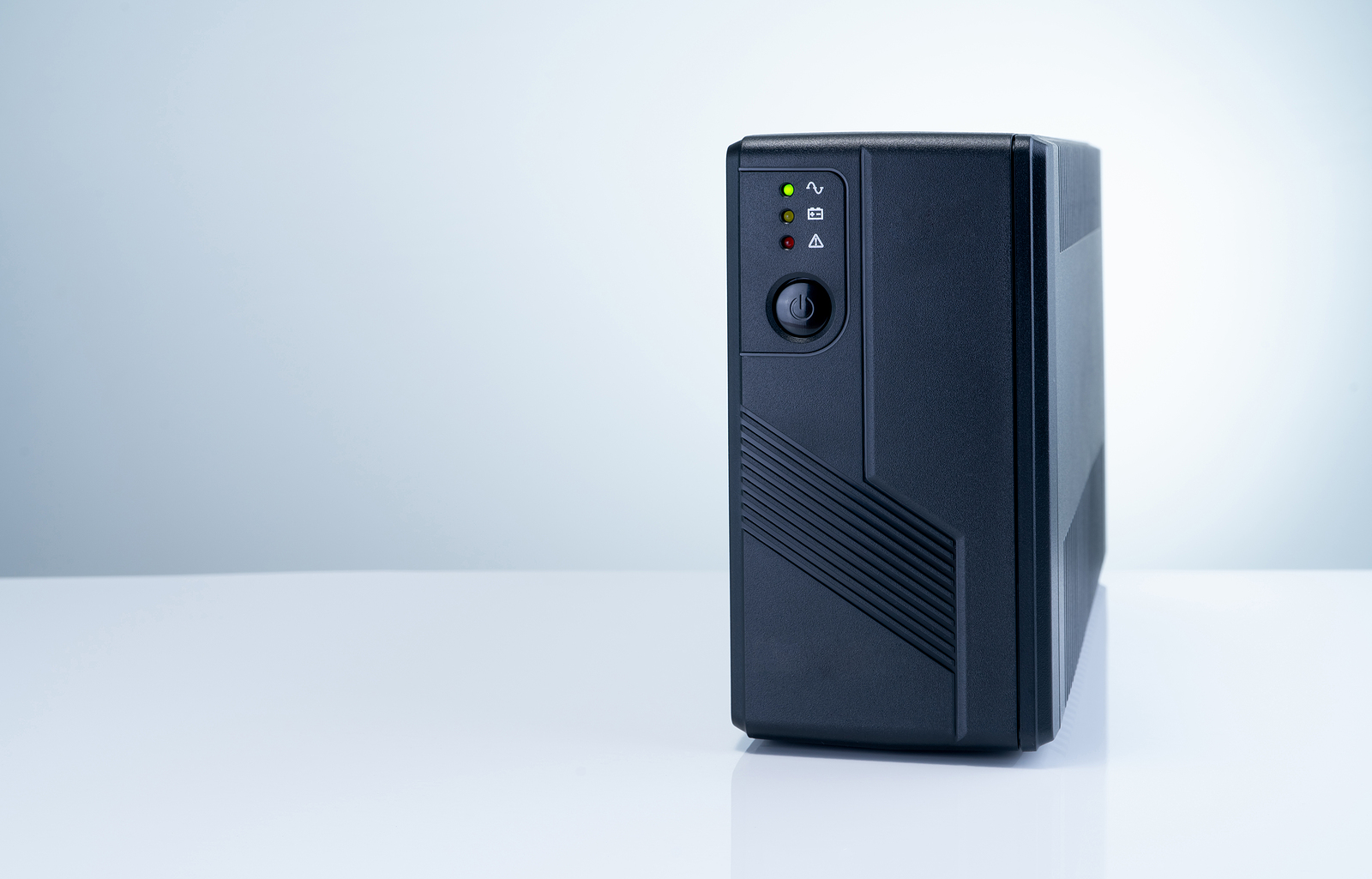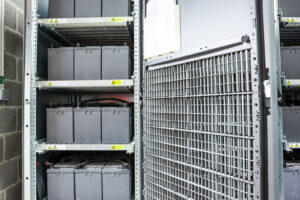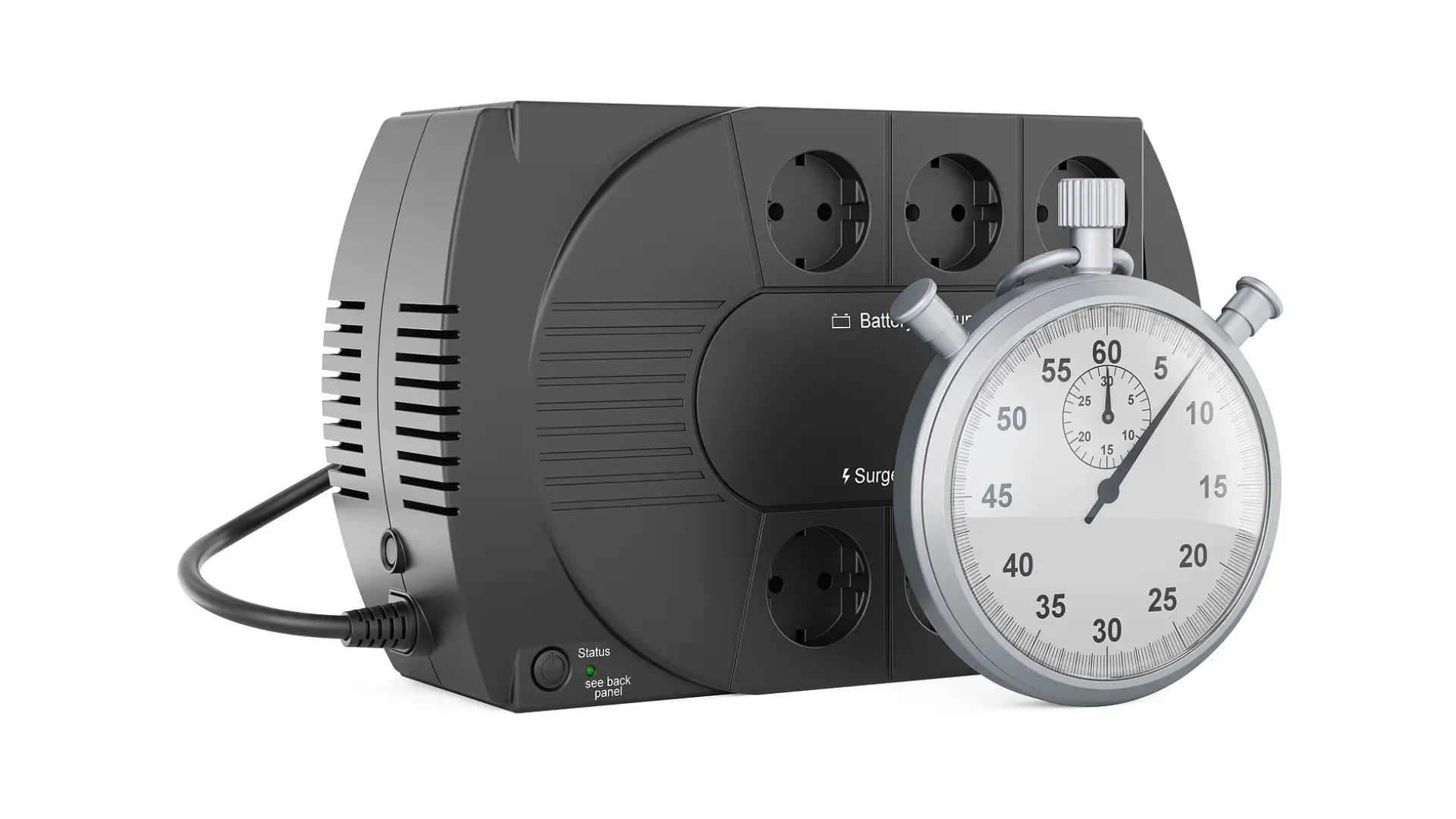
Uninterruptible Power Supply For Medical Equipment
In today's rapidly evolving healthcare landscape, medical equipment plays a pivotal role in patient care and diagnostics. From life-saving ventilators to advanced imaging machines, healthcare facilities rely heavily on a myriad of medical devices to provide efficient and accurate treatment. However, what happens when the power supply to these critical machines is disrupted? The consequences can be dire, potentially jeopardizing patient safety and the effectiveness of medical interventions.
In this comprehensive guide, we will delve into the importance of uninterruptible power supply (UPS) systems for medical equipment, exploring the various aspects of their application, benefits, and best practices. Whether you are a healthcare professional, facility manager, or simply interested in the intricacies of medical equipment power management, this article will provide you with valuable insights.
Understanding the Significance of Uninterruptible Power Supply (UPS) for Medical Equipment
The Critical Importance of Medical Equipment in Healthcare
Modern healthcare heavily relies on an array of sophisticated medical devices that play a pivotal role in diagnosing, monitoring, and treating patients.
These instruments are engineered to operate with utmost precision and reliability, making them indispensable components of medical practice. Any disruption in their functioning can result in life-threatening consequences for patients.
The Susceptibility of Medical Equipment to Power Disturbances
Within the healthcare environment, power disruptions such as outages, surges, and voltage fluctuations are not uncommon occurrences. These disturbances can arise from a multitude of sources, ranging from natural disasters to electrical system faults and even routine maintenance procedures.
The inherent sensitivity of medical equipment makes them exceptionally susceptible to these power irregularities.
The Crucial Function of Uninterruptible Power Supply (UPS)
Uninterruptible Power Supply (UPS) systems emerge as indispensable safeguards for medical equipment. They serve as a critical safety net by providing a continuous and stable power source to medical devices. During instances of power outages or voltage instability, UPS units seamlessly transition to battery power, ensuring uninterrupted operation of vital medical equipment.
This redundancy is paramount in preserving patient care, mitigating potential harm, and upholding the integrity of medical procedures. The role of UPS systems in healthcare cannot be overstated, as they stand as a vital link in the chain of patient well-being and treatment.
Types of UPS Systems for Medical Equipment

Line-Interactive UPS
Line-interactive UPS systems are commonly used in healthcare settings. They provide basic protection against power fluctuations and can quickly switch to battery mode when necessary. These systems are cost-effective and suitable for smaller clinics and offices.
Online Double Conversion UPS
For larger healthcare facilities and critical care units, online double conversion UPS systems are the preferred choice. They offer the highest level of protection by continuously converting incoming AC power to DC and then back to AC. This process eliminates any power quality issues and provides a seamless transition to battery power.
Standby UPS
Standby UPS systems are often used for less critical medical equipment. They are cost-effective and switch to battery power only when the primary power source fails. While they offer some protection, they may not be suitable for equipment that requires uninterrupted power.
Benefits of Uninterruptible Power Supply (UPS) for Medical Equipment
Patient Safety
The primary concern in healthcare is patient safety. UPS systems ensure that vital medical equipment, such as ventilators and heart monitors, continue to function during power disruptions. This uninterrupted operation can be the difference between life and death in critical situations.
Data Integrity
Many medical devices store crucial patient data. Power interruptions can result in data loss or corruption, impacting the quality of patient care and research. UPS systems prevent data loss by providing continuous power to these devices.
Equipment Longevity
Medical equipment is a significant investment for healthcare facilities. Sudden power surges or fluctuations can damage these devices, leading to costly repairs or replacements. UPS systems protect against these electrical issues, extending the lifespan of medical equipment.
Regulatory Compliance
Healthcare facilities are subject to stringent regulations and standards. Many of these regulations mandate the use of UPS systems to ensure the continuous operation of critical medical equipment. Compliance with these regulations is crucial to avoid legal repercussions.
Enhanced Patient Safety
The paramount concern in healthcare revolves around ensuring patient safety. UPS systems play a pivotal role in maintaining the safety of patients by guaranteeing the uninterrupted functionality of critical medical equipment, such as ventilators and heart monitors, even in the face of power disruptions. This continuous operation can make a life-saving difference in critical medical situations.
Safeguarding Data Integrity
Numerous medical devices store invaluable patient data. Power interruptions pose a significant risk, potentially leading to data loss or corruption, which can significantly impact the quality of patient care and research outcomes. UPS systems serve as a dependable shield, safeguarding against data loss by providing a constant power supply to these devices.
Prolonging Equipment Lifespan
Healthcare facilities make substantial investments in their medical equipment. Unexpected power surges or fluctuations can cause extensive damage, resulting in expensive repairs or replacements. UPS systems act as a protective barrier against these electrical issues, effectively extending the operational lifespan of medical equipment and reducing long-term costs.
Regulatory Adherence
Healthcare facilities are subject to rigorous regulations and standards governing their operations. Many of these regulations stipulate the mandatory use of UPS systems to ensure the uninterrupted operation of critical medical equipment. Compliance with these regulatory requirements is imperative to avoid potential legal consequences and ensure seamless patient care.
Selecting the Right UPS System for Your Healthcare Facility
In the healthcare industry, ensuring uninterrupted power supply to critical medical equipment is paramount. To make an informed decision about the appropriate UPS system for your healthcare facility, you need to consider several factors that go beyond mere power backup.
- Assess Power Requirements: Before selecting a UPS system, it is imperative to conduct a comprehensive assessment of your medical equipment's power requirements. Calculate the total wattage of all devices that must remain operational during power outages. This calculation should encompass not only existing equipment but also any future additions. By understanding your facility's precise power needs, you can select a UPS with the appropriate capacity, ensuring the continuous functioning of essential medical devices.
- Prioritize Redundancy: In healthcare settings, redundancy is a critical safeguard against power interruptions. It is highly advisable to have redundant power protection measures in place. This can involve implementing a backup UPS system or integrating a generator into your power infrastructure. These redundancy measures provide an additional layer of protection in the event that the primary UPS system experiences a failure. Redundancy helps guarantee that vital medical equipment remains operational at all times, minimizing the risk of patient harm.
- Consider Scalability: Healthcare facilities are dynamic environments that may experience growth and evolving power needs over time. To accommodate these changes without significant disruption or costly replacements, choose a UPS system that offers scalability. Scalable UPS solutions can be expanded to accommodate additional equipment or increased power demands, ensuring your healthcare facility remains adaptable and prepared for future expansions.
- Implement Remote Monitoring: In today's digitally connected world, remote monitoring capabilities are indispensable for healthcare facilities. A UPS system equipped with remote monitoring allows you to continuously monitor its status and performance. This proactive approach to maintenance enables you to identify and address issues before they lead to unexpected downtime. Remote monitoring not only enhances the reliability of your UPS system but also contributes to patient safety by ensuring uninterrupted power for critical medical devices.
Installing and Maintaining Your UPS System

Professional Installation by Specialized Technicians
When it comes to setting up your Uninterruptible Power Supply (UPS) system for medical equipment, it is crucial to rely on the expertise of qualified technicians. These professionals possess a deep understanding of the unique requirements of medical devices and can ensure that your UPS is installed correctly. An improper installation not only jeopardizes the system's functionality but also poses the risk of damaging the sensitive medical equipment it is meant to protect.
Regular and Rigorous Testing Protocols
Incorporating regular testing procedures into your facility's maintenance routine is essential for the seamless operation of your UPS system. Regularly simulate power outages to evaluate the UPS's performance during critical moments. This proactive approach allows you to identify and rectify any issues before they become problematic, safeguarding the integrity of your medical equipment.
Timely Battery Replacement
Batteries serve as the lifeblood of UPS systems, providing backup power during outages. However, these batteries degrade over time and lose their capacity, ultimately affecting the system's reliability. To maintain optimal performance, adhere to the manufacturer's recommendations regarding battery replacement schedules. Timely replacements not only guarantee the UPS's ability to provide uninterrupted power but also extend its overall lifespan.
Service Agreements for Comprehensive Support
To ensure the continuous and dependable functioning of your UPS system, consider entering into service agreements with either the UPS manufacturer or a reputable third-party provider. These service agreements can encompass a range of benefits, including routine maintenance, on-site support, and rapid response services during emergencies. By leveraging these agreements, you can minimize downtime and maximize the longevity of your UPS system, providing peace of mind in critical medical settings.
Implementing Redundancy Strategies
When it comes to ensuring uninterrupted power in high-availability healthcare facilities, the implementation of redundancy strategies is of paramount importance. These strategies are vital to maintaining the continuous operation of essential medical equipment and systems, where any downtime could potentially be life-threatening.
One such strategy is the utilization of parallel Uninterruptible Power Supply (UPS) systems. These systems are designed to offer an additional layer of redundancy by employing multiple UPS units that work seamlessly together in parallel. In the event that one UPS unit encounters a failure or fault, the remaining units instantly step in to take over the load, guaranteeing a continuous and stable power supply to critical medical equipment. This redundancy is particularly crucial in critical care units and hospitals, where even a momentary loss of power can have dire consequences. By using parallel UPS systems, healthcare facilities can mitigate the risk of power interruptions and ensure that patient care remains uninterrupted.
Additionally, backup generators play a crucial role in healthcare facility power redundancy. While UPS systems provide immediate power during short outages or voltage fluctuations, backup generators serve as a long-term and reliable solution for extended power outages. In the event of a prolonged power failure, backup generators can supply continuous electricity to the entire healthcare facility, including all medical equipment, lighting, and other critical systems. When combined with UPS systems, this dual approach creates a robust and comprehensive power backup strategy. This strategy is capable of sustaining healthcare operations during extended emergencies, ensuring that patient care and safety are maintained even when faced with protracted power challenges.
UPS System Monitoring and Alerts
In the realm of healthcare facility management, the modern UPS (Uninterruptible Power Supply) systems have evolved to incorporate advanced features for robust monitoring and alerting. These comprehensive solutions provide healthcare facility managers with a sophisticated toolkit for overseeing the UPS units' status and performance, offering an enhanced level of detail and control.
- Remote Monitoring Software: Today's UPS systems are typically equipped with sophisticated remote monitoring software, offering a window into the UPS infrastructure's vital statistics. This software enables healthcare facility managers to gain real-time insights into critical metrics, including power input, battery health, load levels, and system efficiency. With this data at their fingertips, facility managers can proactively address potential issues, optimize performance, and ensure the continuous availability of power to critical healthcare equipment.
- Real-time Data Access: The remote monitoring software provides healthcare professionals with immediate access to a wealth of information about their UPS systems. They can monitor power fluctuations, voltage levels, and frequency variations in real-time. Moreover, the software can offer historical data, enabling facility managers to track performance trends and make informed decisions regarding maintenance and system upgrades.
- Proactive Maintenance: With access to comprehensive data, healthcare facility managers can proactively schedule maintenance tasks to prevent downtime and system failures. This proactive approach helps avoid unexpected interruptions in critical medical processes, ensuring that the healthcare facility can operate smoothly and without disruptions.
- Alarm and Notification Systems: In addition to real-time monitoring, UPS systems can be equipped with robust alarm and notification systems. These systems act as the first line of defense, immediately alerting personnel in the event of a power disruption or UPS system fault. The alarms can be configured to trigger visual and auditory alerts within the facility, ensuring that staff members are promptly aware of any issues.
- Integration Capabilities: To further enhance the effectiveness of alarm and notification systems, they can be seamlessly integrated with the healthcare facility's broader monitoring and alerting infrastructure. This integration allows for centralized monitoring and response coordination. When a UPS system issue arises, it can trigger alarms not only on the UPS unit itself but also within the facility's larger alerting system, alerting relevant personnel through various communication channels such as email, text messages, or dedicated monitoring consoles.

Future Trends in UPS Technology for Healthcare
As the healthcare sector continues to evolve, the integration of cutting-edge UPS (Uninterruptible Power Supply) technology plays a pivotal role in ensuring the seamless operation of critical medical equipment and patient care facilities. Here are two noteworthy trends in UPS technology that are set to redefine power management in healthcare:
Lithium-Ion Batteries: A Revolutionary Power Solution
One of the most notable advancements in UPS technology within the healthcare industry is the increasing adoption of lithium-ion batteries. These high-performance batteries have been gaining prominence for several reasons:
- Extended Lifespan: Lithium-ion batteries boast a significantly longer operational life compared to traditional lead-acid batteries. This extended lifespan translates to reduced maintenance costs and a longer-lasting power backup solution for healthcare facilities.
- Rapid Recharge Times: Time is of the essence in healthcare settings, and lithium-ion batteries excel in this regard. They offer remarkably fast recharge times, ensuring that UPS systems can quickly return to full capacity after discharging during power disruptions.
- Compact Form Factor: Space optimization is a critical consideration in healthcare environments where every square foot matters. Lithium-ion batteries have a notably smaller physical footprint compared to their lead-acid counterparts, making them an ideal choice for UPS installations in constrained spaces.
- Enhanced Reliability: Lithium-ion batteries provide a stable and reliable power supply, minimizing the risk of power interruptions that can disrupt critical medical procedures and patient care.
These advantages make lithium-ion batteries a compelling choice for healthcare facilities seeking a reliable, space-efficient, and cost-effective UPS solution to safeguard vital medical equipment.
Energy Storage Integration: A Sustainable Approach to Power Management
Another significant trend in UPS technology is the integration of UPS systems with energy storage solutions, including renewable energy sources and grid energy storage. This integration represents a forward-thinking approach that offers several key benefits:
- Enhanced Power Reliability: By coupling UPS systems with energy storage solutions, healthcare facilities can fortify their power infrastructure. In the event of a grid failure, energy stored in batteries or other storage mediums can seamlessly bridge the gap, ensuring uninterrupted power to critical medical equipment and systems.
- Cost Reduction: Energy storage integration allows healthcare facilities to optimize their energy consumption patterns. During periods of low electricity rates or excess renewable energy generation, surplus power can be stored for later use. This can lead to substantial cost savings over time, contributing to the financial sustainability of healthcare organizations.
- Sustainability Initiatives: As healthcare facilities increasingly prioritize sustainability, integrating UPS systems with renewable energy sources aligns with environmental goals. It reduces the reliance on fossil fuels, lowers greenhouse gas emissions, and supports eco-friendly energy practices.
Conclusion
Uninterruptible Power Supply (UPS) systems are indispensable in healthcare settings, where the continuous operation of medical equipment is paramount. These systems protect patients, preserve data integrity, and ensure the longevity of expensive medical devices. Selecting the right UPS system, installing it professionally, and maintaining it diligently are essential steps in safeguarding your healthcare facility.
In an industry where every second counts, investing in a reliable UPS system is not just a best practice; it's a necessity. By prioritizing power continuity, healthcare facilities can provide the best possible care to their patients while adhering to regulatory standards.
Sources
https://www.usaid.gov/energy/powering-health/system-components/uninterruptible-power-supplies
https://etl.beis.gov.uk/products/uninterruptible-power-supplies/uninterruptible-power-supply
continue reading
Related Posts
Uninterruptable Power Supplies In today's world, where technology keeps us […]
Uninterruptible Power Supply For Laptop In today's fast-paced digital world, […]
Small Uninterruptible Power Supply In today's digital age, where connectivity […]



